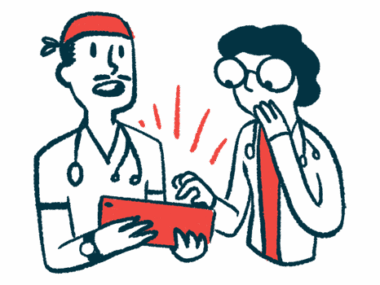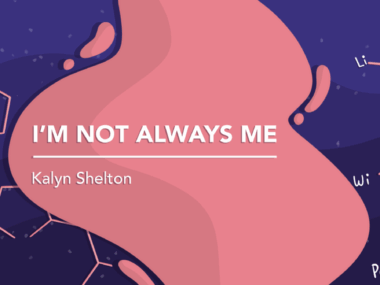For the Women Who Love and Inspire Me, Despite My Illness
Written by |

No matter what, I will always have my girlfriends.
Nothing against my incredible soon-to-be husband, Michael, those were simply the sentiments instilled in me by the woman I admire most in the world: my grandma. Now 96, she has modeled all the behaviors of a great friend throughout my life, and I’ve soaked them up.
As a kid, while classmates were psyched for camps, vacations, or sunny days at the pool, I counted down the days until I got to spend a week with my grandma. She lived two hours south, in a white Foursquare home on a quiet street in Fort Madison. In this southern corner of Iowa, where the Mississippi River flows from east to west, the pace was slower.
Every morning of my week with Grandma, she’d be up with the sun to talk with her girlfriends. A mug of coffee in hand, she’d stretch the phone cord from the living room into the three-season front porch, where she’d rock on her bench swing. She prioritized those relationships by starting her day with check-ins. An attentive listener, she showed genuine compassion to others, and laughed often.
I observed how she found ways to incorporate all kinds of women into her life, from a crew of former co-workers, to the women’s church group, to her very best friend she ran errands with every Sunday.
I vowed to be the friend my grandma was and is.
***
March 8 is International Women’s Day, an ideal time to give thanks for the wise, resilient, invaluable, and incomparable women in my life. Women like my grandma, and the women I am grateful to call my closest friends.
Four years ago, everything in my life, including my friendships, shifted to make room for management of ongoing acute hepatic porphyria (AHP). Before chronic illness took the wheel, I had a large group of girlfriends and an expansive bubble of acquaintances. My friendships looked different then. They resembled weekend getaways, distance running dates, happy hours with professional development groups, and late night conversations over India pale ales.
After diagnosis and the loss of my job, my relationship bubble constricted. Time with friends began looking more like intimate nights at home streaming shows, sitting on blankets quietly under the stars, and chatting on my sectional sofa. In times of crisis, my friendships look even more different — with hangouts occurring at the hospital or through assistance with errands.
Ultimately, the friendships I built around community-based networking and my professional life no longer fit. I remember receiving invites for bicycle rides and beers or fundraisers and galas, letting my fingers hover over the “send” button, second-guessing my drafted message of polite refusal. I felt sad and ashamed I could no longer hang. I felt the loss of budding friendships with women I admired.
I didn’t want to give up on those things or people. Or, more accurately, I wanted to give them up on my terms. That’s the hardest part.
***
I have prioritized female friendships in recent years, thoughtfully collecting a group of loving and understanding women in my corner. This International Women’s Day, I honor the women who are focused on their mental well-being, and their continued progression as good humans. They are safe, openhearted people I learn from and laugh with.
We encourage one another to be gentle with our bodies, we celebrate our good days, we trust each other, and we don’t see each other as “abled” or “disabled.” They are more disappointed in me when I don’t honor my body than when I cancel plans. They want the best for me.
Through unexpected flares that cancel plans, or pain that pulls me into my own head for weeks at a time, porphyria gets in the way of relationships. When I am utterly exhausted from making concessions for my body, it can be frustrating, but my anger cannot change it. If I can recognize the sadness underneath, I can practice self-compassion.
Four short years ago, AHP pulverized my life, not changing who I was, but affecting what I could do. It’s natural to shut down after trauma, and had I not remembered my grandma’s wise words, I may have remained closed off to others, dwelling on my loss. I may never have discovered a group of women who value my health over a set schedule, who joyfully adapt their behaviors to fit my limitations. I may never have met the courageous women who make up my team of infusion room nurses and members of my fellow patient community.
***
Note: Porphyria News is strictly a news and information website about the disease. It does not provide medical advice, diagnosis, or treatment. This content is not intended to be a substitute for professional medical advice, diagnosis, or treatment. Always seek the advice of your physician or other qualified health provider with any questions you may have regarding a medical condition. Never disregard professional medical advice or delay in seeking it because of something you have read on this website. The opinions expressed in this column are not those of Porphyria News or its parent company, Bionews, and are intended to spark discussion about issues pertaining to porphyria.






Leave a comment
Fill in the required fields to post. Your email address will not be published.